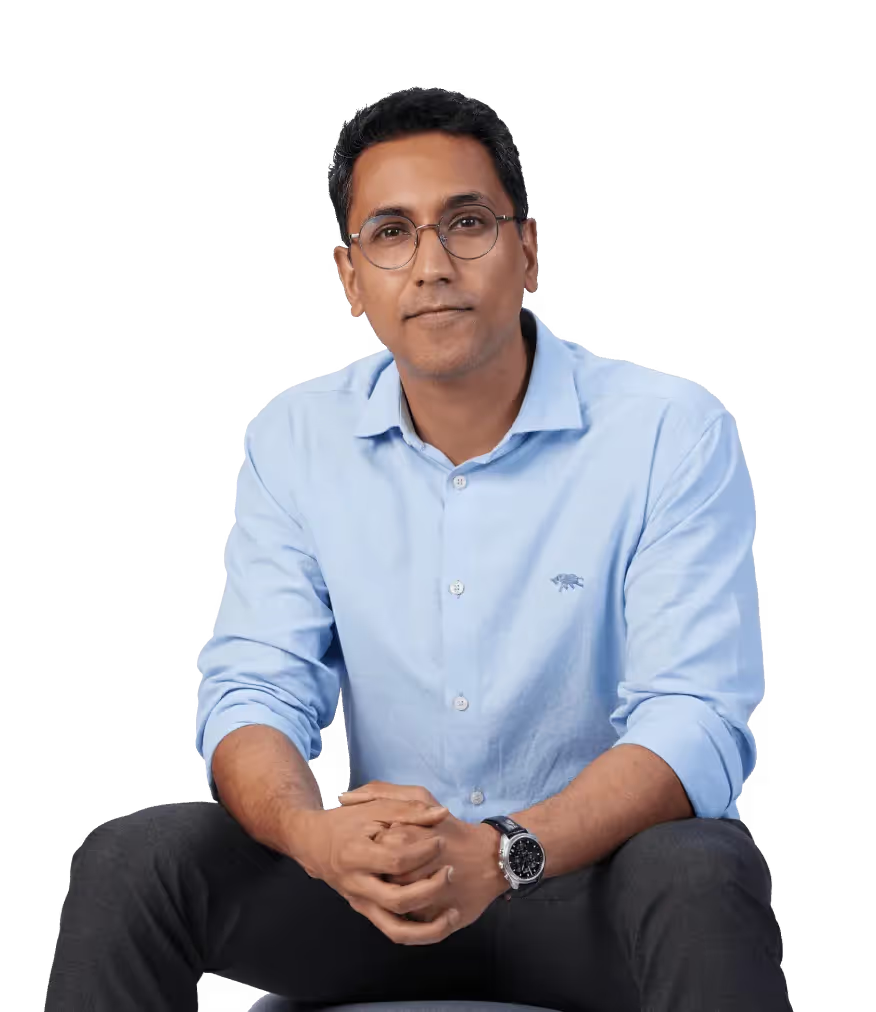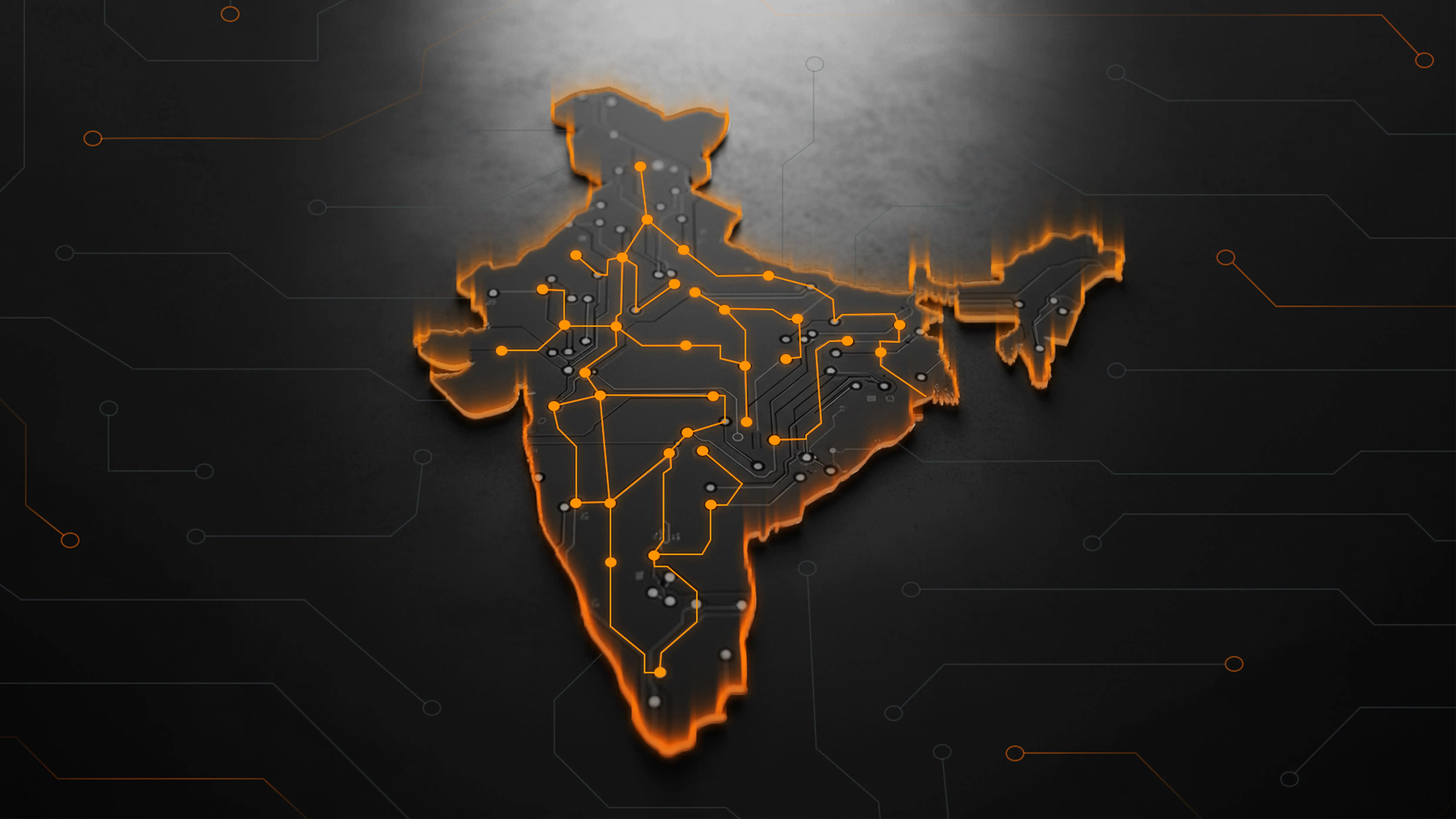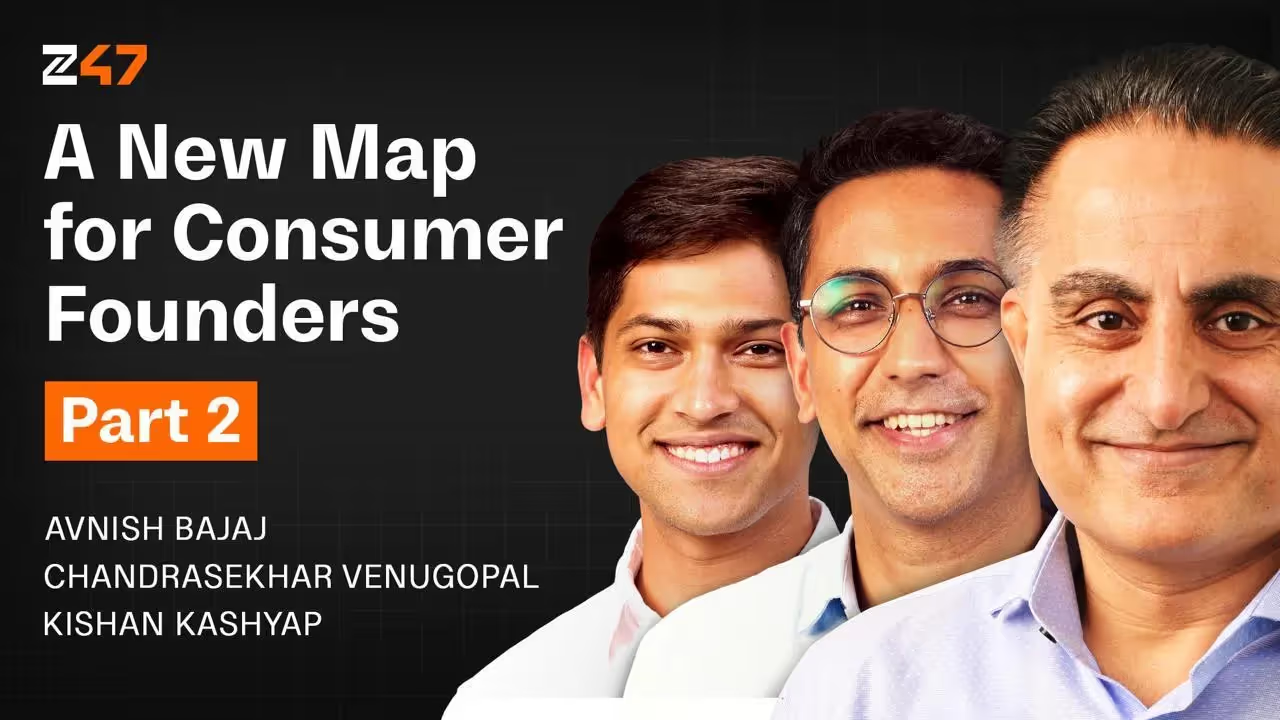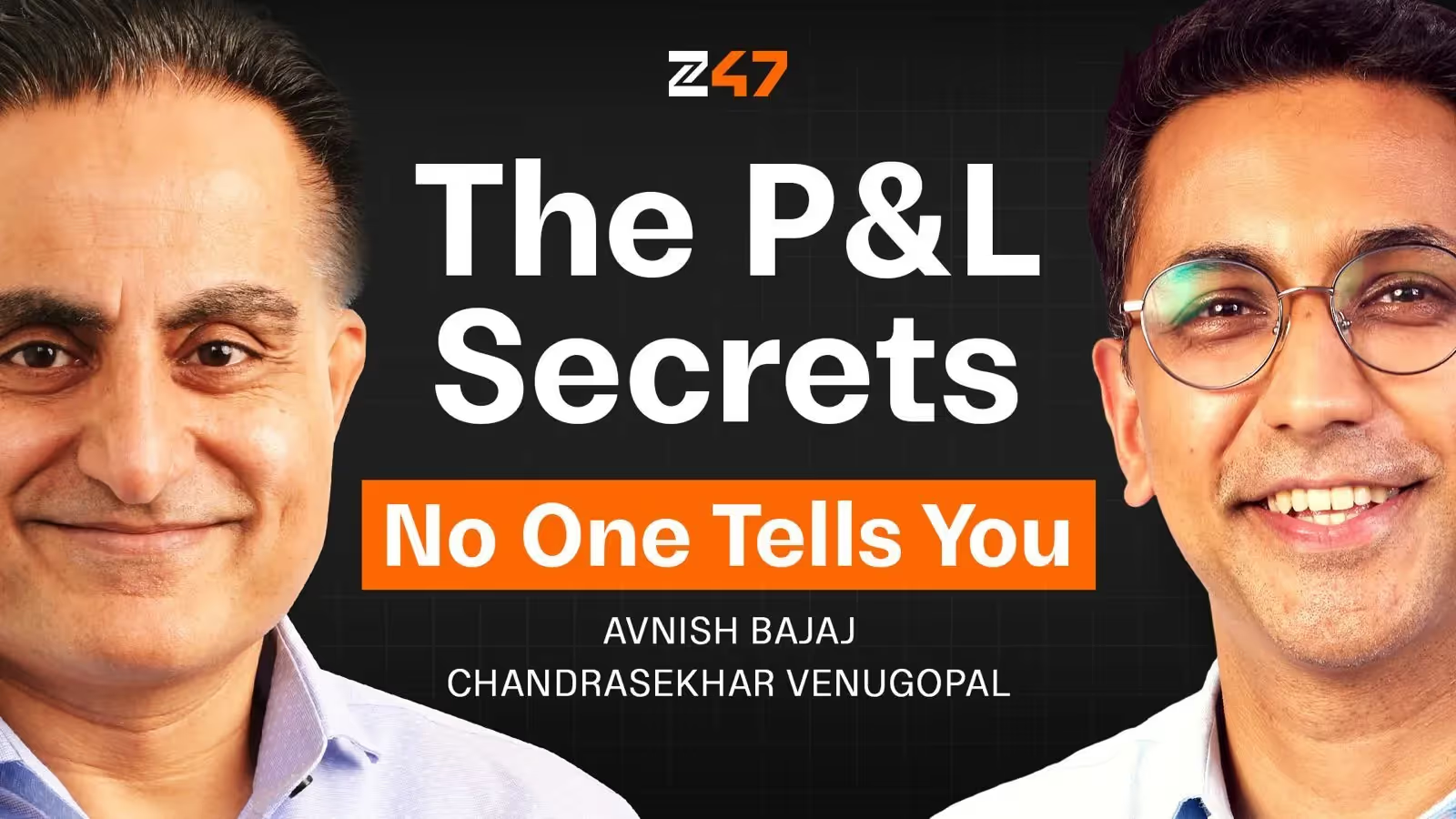Chandrasekhar Venugopal
In
.avif)
.webp)
"Great businesses aren't built on market size alone - they emerge when a founder's natural strengths align perfectly with the core problem they're solving. That's when execution feels almost intuitive."
In
Get To Know
Chandrasekhar Venugopal
There is something magical about the zero-to-one phase that fascinates me. It’s a perfect mix of unconstrained ideation, incredible people and top-notch execution. Challenging the ‘present’ to build the ‘future’.
I’ve had the pleasure of experiencing zero-to-one across multiple sectors and verticals. Started with building a Chemicals distribution company from scratch at BCG. Then moved to Foodpanda where I headed multiple verticals in the early days of Indian consumer Marketplaces.
Post our acquisition by Ola, I left to embrace the Founder journey myself - I built a B2B services platform and a D2C foods company.
I then moved out to head Glance Collective (an Inmobi company) - another zero-to-one experience where we experimented with Live/Content commerce and Celebrity brands.
When a VC role came knocking, the question I considered was not ‘Operating vs Investing’. What excited me was the continuous exposure to zero-to-one, surrounded by exceptional founders.
People and ideas propel us forward - it’s a privilege to be at the intersection.
Having been a Founder myself, I know what it’s like in the trenches.
Details matter and I enjoy brainstorming sessions that go deep - starting with the consumer and ending at business models. What are the consumers ‘actually’ saying? How do we cut cycles? What levers create disproportionate leverage? Who is a good hire?
Some of this unlock happens through expert conversations. Some through primary chats. Some of this is patient, unbiased and well-intentioned hours on a whiteboard.
Supporting founders in my opinion is about going beyond surface-level strategy. It’s about being what they need you to be.
What's fascinating is how India's consumption story is playing out on two parallel tracks.
On one side, you have folks drinking almond milk lattes, willing to pay a premium for experience. On the other, you have a massive segment upgrading from unbranded to branded - or, in many cases, participating in categories for the first time. Both opportunities are massive and unlocking simultaneously.
We're no longer playing catch-up with global trends. When new technology drops - be it AI tools or consumer tech - we're adopting it almost simultaneously with the rest of the world. India is even teaching the world how to run marketplaces and quick commerce!
The Indian consumer is also opening his/her wallet to pay for additional value. Who would have predicted that D2C brands could reach IPO scale in 5yrs? Or that India would pay for digital content /services? Or that India will create IPs for the world?
‘Who we are’, ‘what we buy’ and ‘what we build’ is changing rapidly - and creating giant outcomes in the process.
My evaluation lens focuses on what I call the 'middle match' - where deep category understanding intersects with unique founder capability. The same TAM (top down) and customer insight (bottom up) can lead to multiple business models. The magic, in my opinion, happens when the business model in the middle fits the founder.
Here's an example: In health and wellness, we know consumers will spend more on better food and are growing increasingly conscious about nutrition and ingredients. With this same insight, you could build a farm-to-fork supply chain, a clean-label packaged foods company, or a nutraceuticals platform. Same opportunity, but each business needs a very different founder DNA.
This is why I try to understand not just what founders are building, but what makes them uniquely suited to build it. Through conversations with many founders, I've found that success often lies in that sweet spot where market opportunity aligns with their natural strengths and authentic passion to execute.
Here's what I've seen: Founder-market fit goes deeper than just picking a hot sector you have some experience in.
Firstly, understanding category dynamics is crucial. Every industry has its rhythm, its way of making money. I always ask: "Whose cake are you eating?” (which profit pool are you chasing) because that tells you exactly what you need to do differently.
Secondly, I believe “Why now” (timing) is crucial: the same business model that failed five years ago could become a rocket ship today. If the ecosystem isn't ready - whether it's consumer behaviour or infrastructure - you're pushing against a wall.
Thirdly (and most importantly), founders who win aren't just passionate about the company - they are building in service to their consumer. ‘Listening’ is an underrated skill - Customers are usually telling you what to build and why. Many ideas fail because they are too early where the Founder makes the mistake of “filling in the blanks” rather than “reading between the lines”.
'The Acquired Podcast' for learning from transformative tech stories. Must-reads: 'Leonardo da Vinci' by Walter Isaacson for innovation mindset, 'The Lean Startup' and 'Zero to One' by Peter Thiel for foundational thinking.

.webp)

.jpg)


.svg)


%252520(1).png)




.avif)
